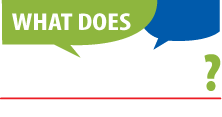Phrases starting with the letter: A B C D E F G H I J K L M N O P Q R S T U V W X Y Z
Definition of: plural
(pl r′əl) adjective
r′əl) adjective
1. Containing, consisting of or designating more than one.
2. Gram. Denoting more than one (in languages that have dual number, such as Sanskrit and Greek, more than two): opposed to singular.
—noun Gram. The plural number, or a word in this number. [<L pluralis <plus more]
—plu′·ral·ly adverb ♦ English nouns regularly form their plurals by adding s or es to the singular; most nouns ending in f change the f to v and add es; as wolf, wolves; half, halves. Nouns ending in y change it to ies if it is preceded by a consonant: body, bodies; or merely add an s if it is preceded by a vowel; as donkey, donkeys. Some nouns of Old English origin have an irregular plural in en, as, child, children; or by a vowel change; as, mouse, mice; goose, geese; man, men; tooth, teeth. A few nouns retain the singular form unchanged in the plural; as, deer, hose, moose, series, sheep, species, vermin. Some such nouns, especially the names of animals, have also an alternative plural regularly formed: as, fish, fish or fishes. Fish is the usual collective plural; fishes is used to indicate more than one genus, variety, species, etc. Many words of foreign derivation retain the plural form peculiar to the languages from which they are severally derived; as, addendum, addenda; antithesis, antitheses; crisis, crises; datum, data, etc. Many nouns of this class have also a plural of the regular English form; as, appendix, appendixes or appendices; beau, beaus or beaux; cherub, cherubs or cherubim; focus, focuses or foci; index, indexes or indices, etc. Compounds commonly form the plural regularly by adding s or es to the complete word; as, armful, armfuls; cut–throat, cut–throats; football, footballs; teaspoonful, teaspoonfuls. If the last element of the compound forms its plural irregularly, the same form usually appears in the plural of the compound; as, footman, footmen. Nouns that end in –man, but are not compounds, form the plural regularly by adding s, as Mussulman, Mussulmans. Hyphenated compounds in which the principal word forms the first element change that element to form the plural; as, father–in–law, fathers–in–law.

Comment about this word, ask questions, or add new information about this topic: